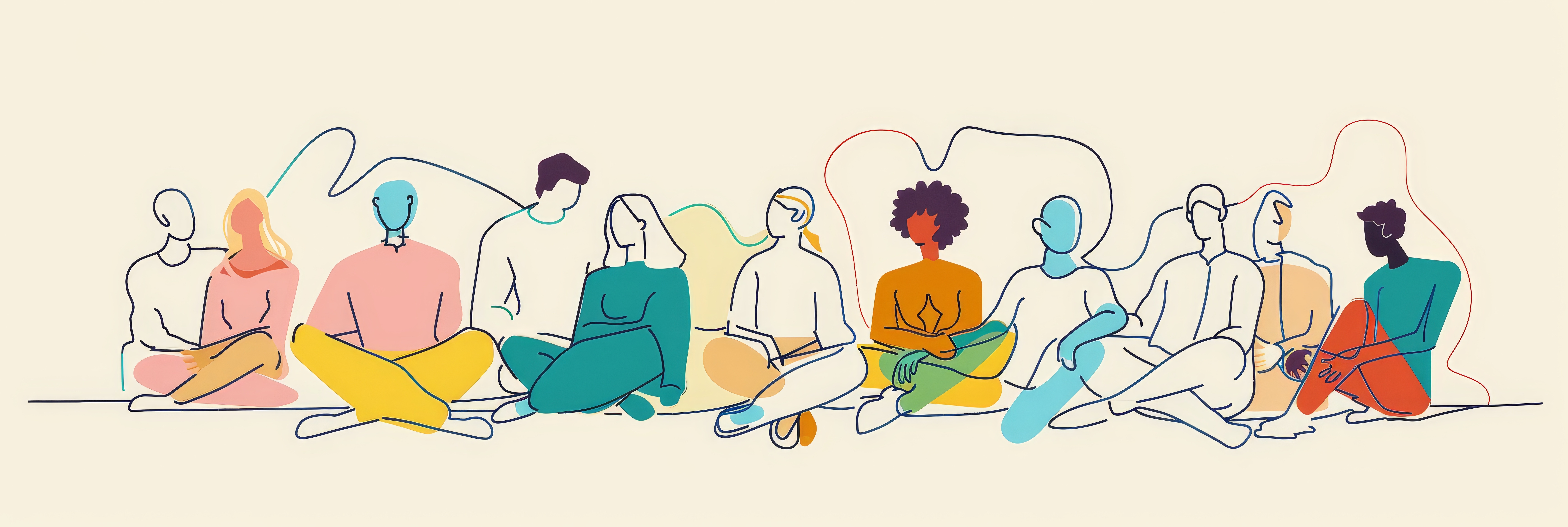By: Ashley Hemrich, MA, Regional Director of Clinical Partnerships
September is National Recovery Month, and we know recovery can symbolize different things for those regaining life after dependency on unhealthy coping behaviors; however, the struggles to obtain sustainable recovery are quite similar. Continued self-compassion is one of the struggles often neglected. Long-term recovery can be overwhelming and quite difficult to maintain; however, with compassion for ourselves and the support from loved ones, we can wholeheartedly grow and develop as the individuals in which our Creator made us to be.
What does it mean to have Self-Compassion?
Self-Compassion is similar to having compassion for others. For example, if you see someone in suffering, do you turn a blind eye or offer to help them? Self-compassion involves that same question, only turned inward. Whether it be the inability to fulfill expectations at a job, noticing something you dislike about yourself, or feeling as though you have had the worst day ever, do you ignore your emotion with the “just get over it” mentality? Or do you beat yourself up about it because “you should have done better,” or say to yourself, “this is difficult right now” and “what can I do to care for myself at this moment?“.
Recovery is a journey, not the destination. There will be days that are much easier than others, but instead of mercilessly judging and criticizing ourselves for our shortcomings on those difficult days, we can be kind to ourselves and understand that our imperfections are catalysts for individuality, growth, and development.
According to Dr. Kristin Neff, Self-Compassion Research Analyst and Associate Professor of Human Development and Culture at the University of Texas, “People who embrace self-compassion are generally happier and have better immune responses to stress.” Conversely, those who engage in negative self-talk are more likely to experience high levels of anxiety, depression, and decreased healthy immune system functioning.
What is NOT Self-Compassion?
Self-compassion is not self-pity. It is not losing sight of others’ struggles and becoming immersed solely in our problems. It is not ignoring our connections with others and isolating ourselves because we feel as though we are the only ones with the issue at hand. In recovery, we are blessed to have a support system, our “tribe” of people, in which help to lead, guide, and walk beside us as we continue to navigate this life-long journey. When we feel self-pity, we become immersed in the magnitude of our problems which continue to facilitate feelings of isolation and disconnection. We cannot step away from the situation at hand and analyze it from a more broad and well-balanced scope. Those with compassion for themselves can take a step back, acknowledge the current situation, and make perceptions and decisions based on their knowledge and intuition.
Tips to Embrace Self-Compassion
According to Kristin Neff, below are the three key features of embracing self-compassion:
- Treat Yourself with Kindness: Kindness towards ourselves involves a warm understanding that when we suffer, fail, or feel inadequate; we recognize these circumstances are inevitable and choose to be gentle with ourselves and not fall prey to self-criticism. Just as you would treat a loved one in a similar situation, you need to treat yourself with kindness and support. Refrain from judging yourself based on wrongdoings, and instead generate a positive state of feeling cared for, supported, and accepted for exactly as you are. When we accept the reality in which we are imperfect with sympathy and kindness, greater emotional equilibrium is inevitable.
- Embrace the Imperfections of Human Nature: How many times how you asked yourself “Why is this happening to ME?” Or how many times have you searched social media and thought “Wow, these people are living the perfect life? What is wrong with ME?” We have all experienced this discord many times in our lives. We believe as though everyone else is living “normal” and “perfect” lives, while we are suffering in isolation from our shortcomings. News flash: Everyone is imperfect. Actually, the definition of “human” embodies “vulnerability, mortality, and imperfection.” So, instead of dwelling on why these negative experiences involve you or why you aren’t living a “normal” life, understand that suffering and inadequacy are part of the human experience. We are all capable of mistakes, flaws, and imperfections, yet, the way in which we recognize this shared humanity enriches our connections with others, while also reducing our feelings of isolation.
- Bring Awareness to the Present Moment: Live in the present moment. Why dwell on past experiences or grow anxious about the future, when we can embrace the here and now? Many times, our self-criticism stems from a past event in which we were displeased with our actions: “I shouldn’t have done that” or “I should have done this instead.” Our experiences embrace our individuality. Think about it; if there were a correct response for every action, our world would be quite dull and boring. By utilizing mindfulness-based techniques and our compassion for ourselves, we can bring the situation to the present moment by acknowledging the circumstantial discomfort and being gentle with ourselves.
Self-Compassion in Eating Disorder Recovery
While in recovery from an eating disorder, we are often faced with many different obstacles that challenge our compassion for ourselves. Take social media and this idea of the “normal” and “perfect” life. When in the depths of an eating disorder, comparing ourselves to others in every way, shape, and fashion is an inevitable part of the disorder. It is easy to get caught up in the comparing mind, and negative self-talk when scrolling through our social media feeds to find that everyone we know has presented their best selves.
Let’s also take the topic of food in general, as an example. In our society, many holidays and events revolve around food. For those in recovery from an eating disorder, these tend to be the most difficult times (rightfully so) to continue to sustain recovery and embrace self-compassion. By acknowledging these challenging times for ourselves, rather than wallowing in negative self-talk, which let’s face it, does not motivate anyone to love themselves, we can understand that we are not alone in our struggles. Eating disorders love and feed off isolation, but our interconnectedness with others fuels our compassion for ourselves and ultimately continues to drive our recovery.
Also, take into consideration that “relapse” is a part of the process. Relapse can make us stronger, if we let it. Relapse is a time to:
- Acknowledge the precipitating factors and situation at hand
- Acknowledge that we are humans and are imperfect
- Be kind and gentle with ourselves because we are inevitably going to make mistakes and that’s okay
Selah House can Help
Recovery is a life-long journey, and one which is sometimes difficult to maintain; however, with the help of love for ourselves and knowing that we are not alone in this, we can strive to continue to reclaim our freedom and live the life that was meant for us.
At Selah House, we help you understand that recovery from your eating disorder is possible and attainable. We treat your whole being with therapeutic psychiatric, medical, and nutritional care that supports you physically, spiritually, and emotionally during recovery.
If you or a loved one is struggling with an eating disorder, we are here to help. Call us today at 765.819.2524 or complete our contact form for more information.

 Call
Call

